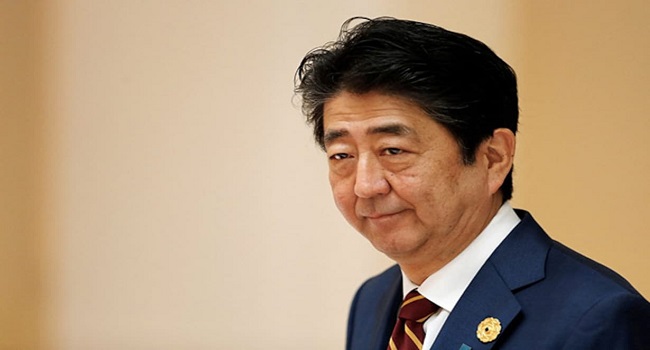A man has set himself ablaze near the Japanese prime minister’s office in protest of the government’s decision to hold a state funeral for former leader Shinzo Abe.
Abe was assassinated earlier this year in the country.
The man, who set himself on fire, was taken to hospital after suffering burns to his entire body, while a police officer who tried to extinguish the flames was also injured.
The man, in his 70s, was unconscious when first found but later told police that he had deliberately doused himself in oil, media said.
According to Reuters, a letter about Abe’s state funeral and the words “I strongly oppose it,” was found nearby.
Police declined to confirm the incident, which took place on what would have been Abe’s 68th birthday.
Abe, Japan’s longest-serving premier, was gunned down at a campaign rally on July 8, while his state funeral is set for September 27, with some 6,000 people from Japan and overseas set to take part.
READ ALSO: Ex-Japanese PM, Shinzo Abe, shot dead
But opposition to the event has been growing because of revelations after Abe’s killing of links between the Liberal Democratic Party (LDP), of which he was a powerful member, and the controversial Unification Church.
The suspect in Abe’s death has said the church bankrupted his mother and he felt the former prime minister supported it.
Links to the Unification Church, founded in South Korea in the 1950s, have grown into a huge problem for current Prime Minister Fumio Kishida and the LDP since they emerged following Abe’s killing.
The LDP earlier this month said a survey showed nearly half of 379 lawmakers had some form of interaction with the church.
Public sentiment was narrowly in favour of a state funeral at the time it was announced, shortly after Abe’s death, but opinion has shifted sharply.
Numerous public opinion polls show a majority of Japanese now oppose the ceremony, helping to send Kishida’s support plummeting.
A poll by the Mainichi Daily conducted at the weekend showed his support at 29%, down six percentage points from late August – a level that analysts say makes it difficult for a prime minister to have enough support to carry out his agenda.
- Another Kano APC ward faction suspends Ganduje - April 21, 2024
- U.S. lawmakers pass bill to ban TikTok - April 21, 2024
- MLS: Messi double helps Inter Miami stay top - April 21, 2024










